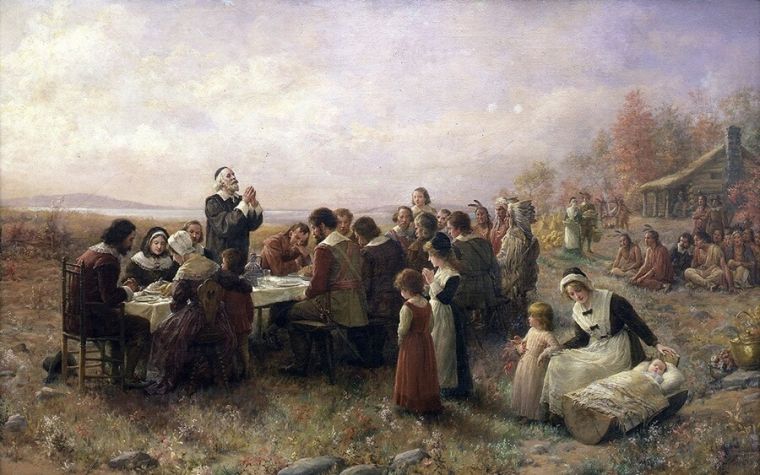Thanksgiving's Christian roots: How far Americans have removed themselves from Founders' faith

The observance of Thanksgiving is deeply rooted in Christian faith, and when people try to examine its history, it will make them realise just "how far, as a nation, we have removed ourselves from the Christian worldview and faith of our Founders."
According to Eddie Hyatt of Charisma News, the faith displayed during earlier Thanksgiving proclamations made by former presidents George Washington and Abraham Lincoln "is glaringly missing" in today's observance.
"This is why we must pray for another Great Spiritual Awakening in our land," he said. "In spite of the fact that 'Thanksgiving' has become secularised and commercialised, we as Christians must never forget that the day is rooted in the commitment of our forefathers and foremothers to maintain a thankful heart even through the most painful and challenging times."
Hyatt took a trip down memory lane in his article, recalling how the Pilgrims who landed on Cape Cod in November 1620 were "devout followers of Christ who had left the comforts of home, family and friends to pursue their vision of a renewed and reformed Christianity."
"They were not whiners but chose to maintain an attitude of gratitude even through the most trying times, such as the winter of 1620-21 when sickness ravaged their community and half of them — about 50 — were taken away in death," he said.
They celebrated their first Thanksgiving in the fall of 1621, and even though their hearts were heavy with their deaths and losses, they still had so many things that they were grateful for.
Hyatt said there were three things they felt blessed about. The first was that with the arrival of spring, the sickness that had immobilised their community and claimed so many lives was finally lifted.
The next blessing was that God sent them an English-speaking Native American named Squanto. He "became their interpreter and guide, helping them establish friendly relations with Massosoit, chief of the Wampanoag, the nearest and most powerful tribe in the region," Hyatt said.
In March 1621, the Pilgrims signed an agreement of peace and mutual aid with the native Americans under Massosoit, and this resulted in friendship and flourishing trade.
Finally, after taking the advice of Squanto about farming and fishing, they experienced abundant harvests year after year.
"The Pilgrims did not seek to force their faith on the Indians, but neither did they hide their faith. One can only imagine the emotions that filled their hearts as, in the presence of their new Native American friends, they joined Elder William Brewster in lifting up their hearts in praise and thanksgiving to God," Hyatt said.











